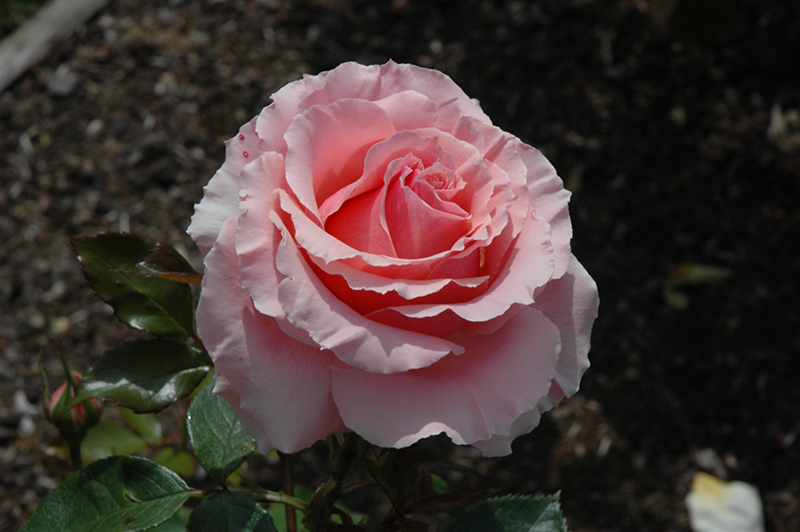Plant Search Tool
This is a 3rd party Knowledgebase and does not reflect actual stock
Tournament of Roses Rose
Rosa 'Tournament of Roses'
Height: 5 feet
Spread: 3 feet
Sunlight:
![]()
Hardiness Zone: 8a
Group/Class: Grandiflora Rose
Description:
This interestingvariety produces gorgeous rose pink blooms with darker pink reverses, above the deep green, glossy foliage, and are perfect for cutting; vigorous grower with excellent disease resistance
Ornamental Features
Tournament of Roses Rose features showy lightly-scented double rose flowers with a hot pink reverse at the ends of the branches from early summer to mid fall. The flowers are excellent for cutting. It has dark green deciduous foliage. The glossy oval compound leaves do not develop any appreciable fall colour.
Landscape Attributes
Tournament of Roses Rose is a multi-stemmed deciduous shrub with an upright spreading habit of growth. Its average texture blends into the landscape, but can be balanced by one or two finer or coarser trees or shrubs for an effective composition.
This shrub will require occasional maintenance and upkeep, and is best pruned in late winter once the threat of extreme cold has passed. It is a good choice for attracting bees to your yard. It has no significant negative characteristics.
Tournament of Roses Rose is recommended for the following landscape applications;
- Accent
- Mass Planting
- Hedges/Screening
- General Garden Use
Planting & Growing
Tournament of Roses Rose will grow to be about 5 feet tall at maturity, with a spread of 3 feet. It tends to fill out right to the ground and therefore doesn't necessarily require facer plants in front, and is suitable for planting under power lines. It grows at a fast rate, and under ideal conditions can be expected to live for approximately 30 years.
This shrub should only be grown in full sunlight. It does best in average to evenly moist conditions, but will not tolerate standing water. It is not particular as to soil type or pH. It is highly tolerant of urban pollution and will even thrive in inner city environments. This particular variety is an interspecific hybrid.






